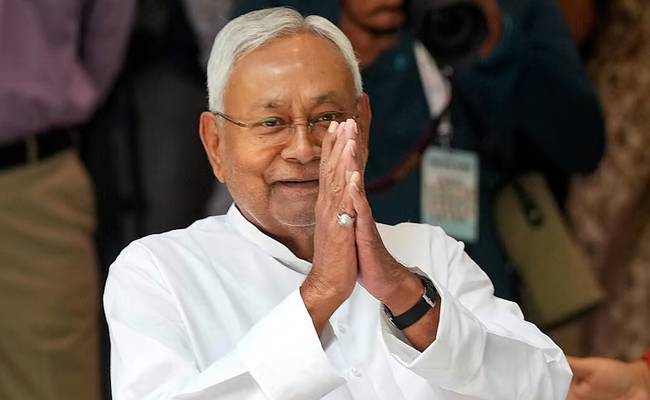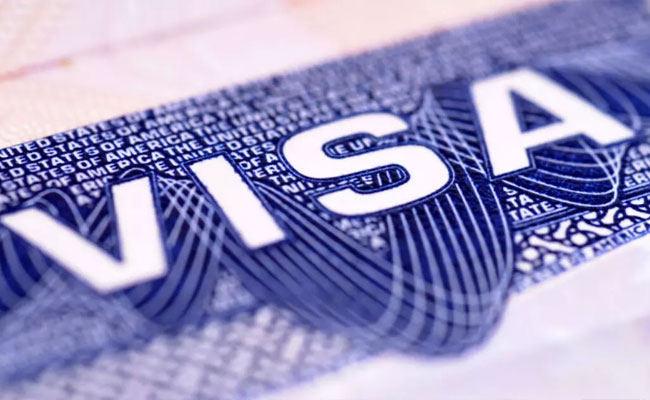Washington, Oct 13 : The US wants to prohibit data localisation to ensure that there is a free flow of information across borders, a senior Trump administration official has said, amidst reports that major American IT companies are up in arms against the latest Indian directive which kicks off next week.
Data localisation is an act of storing data on any device that is physically present within the borders of a particular country where the data was generated.
The Reserve Bank of India (RBI), in a circular in April, said all system providers will have to ensure that the entire data relating to payment systems operated by them are stored in a system only in India. It gave time till October 15 to comply with the mandate.
"We want to have prohibitions on data localisation to ensure that there's free flow of information, free flow of data across borders, disciplines around countries requiring companies to give up their source code, permanent ban on taxation or duties on digital transmissions," Dennis Shea, Deputy US Trade Representative and US Ambassador to the WTO, told a Washington audience on Friday.
"And by the way, South Africa and India want to rethink the current moratorium on those duties," Shea said in response to a question at the Center for Strategic and International Studies (CSIS), a top American think-tank.
American financial companies are believed to have approached the administration against an RBI directive which, beginning October 15, requires them to store in India any payment-related data from transactions that take place inside the country.
India has rejected their request of mirroring.
"If implemented, this policy will put an unnecessary burden on American companies and hurt consumers, who will endure higher costs and increased cybersecurity risks," Republican Strategist Andy Surabian, who is also a political adviser to Donald Trump Jr, wrote in BreitBart News this week.
"And they are planning to do all of this in spite of the unprecedented level of economic support the US has provided India over the course of decades. The Trump administration should stand up to these reckless actions, just like they have done in other situations when Americans were getting bullied and pushed around," Surabian demanded.
During his CSIS appearance, Shea did not specifically pointed out India on the data localisation issue, but made his views pretty clear where the Trump administration stands on this issue.
Shea said the US is very engaged at the multilateral issue and has a very high-ambition approach to that.
The general view is that the negotiation part of this process may begin early next year, or perhaps a ministerial statement around Davos.
Other members of the WTO, he said, have lower ambitions so "how this works out still remains to be seen," he added.
Mobile messaging platform WhatsApp has said it has built a system that stores payments-related data in India, in line with RBI's data localisation policy.
Let the Truth be known. If you read VB and like VB, please be a VB Supporter and Help us deliver the Truth to one and all.
Patna (PTI): Bihar was abuzz with speculation on Wednesday over rumours that JD(U) president and the state’s longest-serving Chief Minister Nitish Kumar may move to the Rajya Sabha, paving the way for the BJP to take the top post while accommodating his son Nishant as deputy CM.
However, senior BJP leader and Union minister Giriraj Singh dismissed the rumour as a "Holi prank", asserting "Nitish Kumar ji is the chief minister".
The filing of nomination papers for five Rajya Sabha seats in the state will close on Thursday.
While the BJP has named its two candidates, including national general secretary Nitin Nabin, and confirmed a second consecutive term for junior NDA ally Upendra Kushwaha, the JD(U) is yet to officially announce its nominees.
The rumours of Kumar, who turned 75 earlier this month, being one of the candidates of JD(U), surfaced a day after the party had announced that his son Nishant would be making a belated entry into politics.
Earlier, there were speculations that the reclusive Nishant, who is in his late 40s and is yet to be formally inducted into the JD(U), could be sent straight to the Rajya Sabha.
However, with less than 24 hours left for filling of nomination papers, several media outlets ran reports claiming that the chief minister, who has been at the helm since 2005, could choose the Rajya Sabha route to make an "honourable exit".
According to these unconfirmed reports, the BJP, which has been outperforming the JD(U) in elections, will have its own CM in the only Hindi heartland state where the highest seat of power has eluded it.
These reports also suggested that as a bargain, Kumar could settle for the deputy CM's post for his son.
When Giriraj Singh, who represents Begusarai Lok Sabha seat in the state, was approached with queries, he said, "Today is Holi. Such pranks are common on the occasion. Nitish Kumar ji is the chief minister".
JD(U) MLC Sanjay Kumar alias Gandhi ji, a close aide of the party supremo, reacted with bewilderment when his response was sought to the rumours.
"We have no information about who will be the Rajya Sabha candidates of the party. There is an impression that Union minister Ram Nath Thakur may retain his seat, but that is also not official. As regards the other seat, it is a decision to be taken by the chief minister, who is known to reveal his cards at the eleventh hour. We cannot say anything on the reports in the media," he said.





